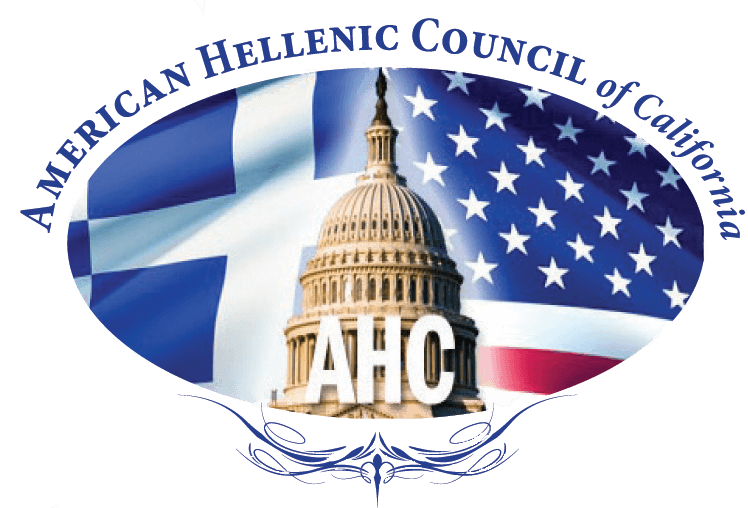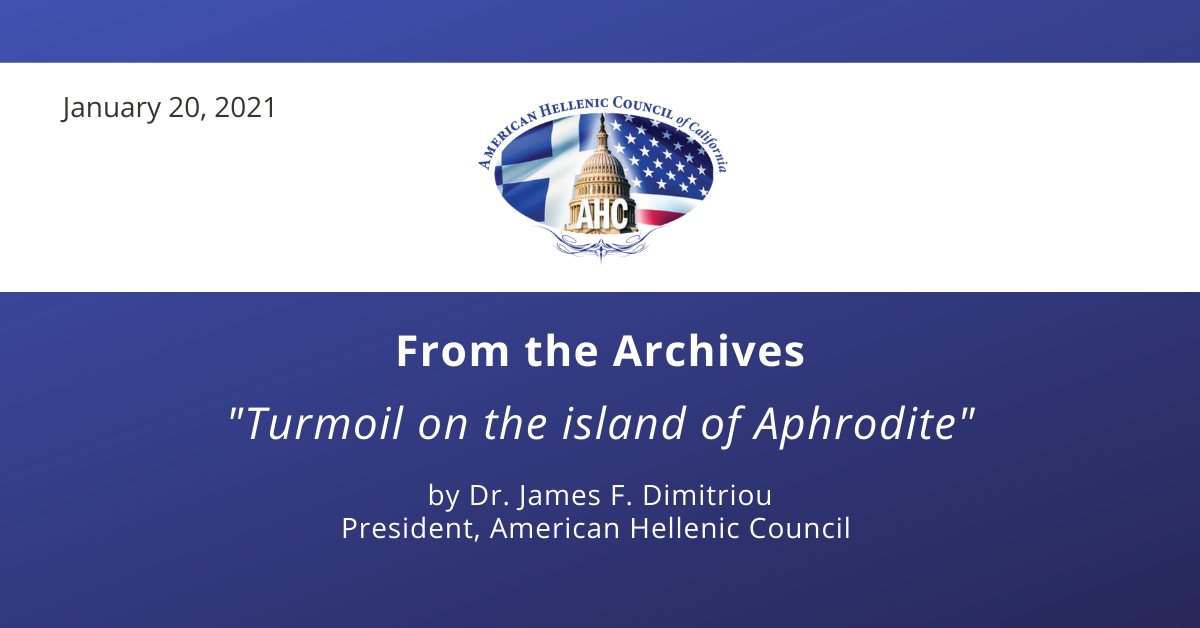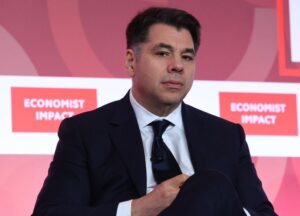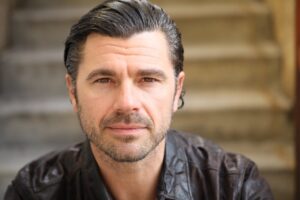 An essay by Ioannis Fidanakis, former Executive Director of the American Hellenic Council.
An essay by Ioannis Fidanakis, former Executive Director of the American Hellenic Council.
After more than a decade of harrowing bloodshed that has displaced over 14 million people, the Syrian Civil War has finally ended, and the last vestige of Ba’athism has fallen. What began as a surprise offensive out of Idlib by a coalition of Turkish-backed Islamists, mercenaries, and Pan-Turkic supremacists led by Hayat Tahrir al-Sham (HTS) has successfully overthrown the Assad regime in less than two weeks, sending seismic geopolitical shockwaves throughout the eastern Mediterranean. The political fallout is sure to shape regional affairs for decades to come. As the world now watches to see what a post-Ba’athist Syria will look like, two things are glaringly evident. Russia and Iran have just been dealt a significant blow, and Turkish President Recep Tayyip Erdoğan, the leading international supporter of the armed forces celebrating in Damascus, may have just been anointed Sultan.
Since 2020, the brutal conflict had reached a stalemate, with the Assad regime controlling the majority of the country, bolstered by its allies Russia, Iran, and Hezbollah, and tentatively moving towards normalization with the international community. The Syrian opposition seemed to have been all but silenced. The only remaining forces were the Kurdish-dominated Syrian Democratic Forces in the northeast and Turkey, which maintained the Islamist-held Idlib province and directly occupied parts of northern Syria. The Kremlin had even initiated efforts to mend the rift between Ankara and Damascus. However, Syrian President Bashar al-Assad’s refusal to engage with Turkey and its opposition appears to have been the final nail in his political coffin. Under mounting domestic pressure to resolve the Syrian refugee crisis, Turkish President Recep Tayyip Erdoğan ran out of patience and seized the opportunity presented by the situations in Lebanon and Ukraine to his advantage, giving the green light to Turkish-backed forces to launch an offensive, breaking the years-long deadlock.
To the astonishment of many, the lightning-fast offensive by Turkish-backed forces, which seized Aleppo, Hama, and Homs, spurred other armed groups to launch their own separate offensives. And like a row of dominos, cities soon began to fall with little resistance from the regime and its allies. Southern Front rebels captured Daraa and Suwayda. The Syrian Free Army and the Syrian Democratic Forces marched on Palmyra and Deir ez-Zor. The Russian military presence had significantly reduced due to Russia being bogged down in Ukraine, and Hezbollah significantly weakened from its war with Israel. The Ba’athist government collapsed, and Bashar al-Assad and his family fled to Moscow.
Hayat Tahrir al-Sham and its coalition
For those unfamiliar with the current Syrian opposition, Hayat Tahrir al-Sham (HTS), or Organization for the Liberation of the Levant, was the most prominent of the remaining armed opposition groups and the de facto local administration of the Idlib province. A Salafi-Islamist militia formerly associated with al-Qaeda, the HTS received substantial assistance from Turkey, most importantly in the form of drones and training in the art of drone warfare. In 2016, the group, then known as Jabhat al-Nusra, broke ranks with al-Qaeda and incorporated several other Islamist militias into its ranks before rebranding itself as Hayat Tahrir al-Sham. Despite great efforts to distance themselves from their past, the United States and other Western countries designated the HTS as a terrorist organization in 2018.
The other main coalition partner in the offensive on Aleppo was the Syrian National Army (SNA). It was established in 2017 by the Turkish government and the Syrian Interim Government to create a more effective armed opposition force and to secure Turkish territorial gains in northern Syria. The SNA is a Turkish proxy that incorporates dozens of Islamists and Turkmen militias of various ideologies. It has its roots in the Free Syrian Army, which was the initial principal opponent of the Assad regime in 2011 and received direct funding, training, and military support from Turkey, which has deployed the SNA as a proxy force in conflicts outside of Syria, from Libya to Nagorno-Karabakh.
Another little-known partner is the Syrian Turkmen Brigades, or United Turkmen Army, composed of Syrian Turkmen and Turks that subscribe to a broad spectrum of ideologies from radical Islamism to secular Turkish nationalism and Turanism. Many within their ranks are Turkish citizens with connections to the Grey Wolves, such as Alparslan Çelik, the commander of their 2nd Coastal Division, who is a member of the Grey Wolves and son of Ramazan Çelik, the former Nationalist Movement Party (MHP) Mayor of Keban. It was Alparslan who allegedly killed a Russian pilot shot down by Turkey in 2015.
The Role of Turkey
No matter how you slice it, the overthrow of the Assad regime could not have been achieved without Turkey’s military training and logistical support. Heavily involved in organizing the Syrian opposition since the outbreak of civil unrest in 2011, Turkey began by providing military assistance and training to defectors of the Syrian Arab Army under the supervision of the Turkish National Intelligence Organization (MIT) and eventually directly intervened militarily in 2016, leading to the ongoing Turkish occupation of northern Syria.
Turkey initially supported the opposition as a way to weaken Assad but later found it necessary to target Kurdish opposition forces that had established an autonomous enclave in northern Syria across the Syrian-Turkish border. In recent years, Ankara’s primary objective has been to achieve a political solution to the conflict to facilitate the return of Syrian refugees and prevent the possibility of Kurdish statehood or autonomy. This is why, since Assad’s fall, Turkish proxies, with support from Turkish airstrikes, have continued their offensive on the Syrian Democratic Forces. Already resulting in the loss of Tell Rifaat and Manbij and advancing toward Kobani.
Regime change in Syria, in many ways, is a coronation of Erdogan and his Neo-Ottoman foreign policy, a victory that strengthens Turkey’s diplomatic clout in the region and throughout the Islamic world. It also signals to the United States and the incoming Trump administration that Turkey is a regional power and can counteract Russian and Iranian influence in the Middle East. With Assad gone, Erdogan now has the opportunity to reshape Syria in a way that benefits Turkey’s strategic interests. By asserting influence on the new political order of Syria, Erdogan could secure Turkey’s southeastern border, end the refugee crisis, and even challenge Greek and Cypriot interests in the eastern Mediterranean.
Greece, Cyprus, and the Levant
Whether Greece or Cyprus admit it or not, the fall of the Assad regime is going to affect their interests in the eastern Mediterranean directly. With Russian and Iranian influence diminishing in the region, Turkey is poised to fill the vacuum, making it a dominant regional power that has just secured its interests in the east and can focus westward towards the Aegean. No longer held down in Syria, and with a possible new regional ally, Erdogan could pursue his Blue Homeland policy with even greater vigor, especially if the new government in Damascus decides to adopt pro-Turkish positions, like legitimizing the Turkish occupation of northern Cyprus or challenging Cypriot EEZ rights in the Mediterranean. Since Cyprus and Syria never formalized their EEZ borders.
Even worse, Russian military bases in Syria lie directly across from Cyprus. The Tartus naval base and the Khmeimim Air Base in Latakia are among the Kremlin’s most strategically important military outposts. Moscow is trying to engage with the new interim government to reach a favorable agreement allowing Russia to maintain its access to these two facilities. Should the new Islamist government decide to end Russia’s military presence in the country, it isn’t out of the realm of possibility that these two bases could find themselves under new Turkish management. As the closest ally of Hayat Tahrir al-Sham, who else would the new Syrian government feel comfortable leasing these facilities to?
In the end, Erdogan’s gamble in Syria paid off, and Turkey is on the rise. If Moscow decides to withdraw from the region, Greece cannot afford to allow Turkey alone to fill the vacuum. It must demonstrate to its European and American allies that it, too, can play a crucial and stabilizing role in the void left by Assad’s downfall and Russia’s retreat from Mediterranean affairs. If not, Greece and Cyprus could find themselves out-maneuvered by a hostile adversary bent on regional domination. Greece can no longer afford to be absent in regional events. It must seek to make itself the West’s chief partner and meditator in regional affairs. There are over a million native Greek Orthodox and Melkite-Greek Catholic Christians throughout the Levant waiting for Greece to engage with them. Throughout the recent offensive in Syria, several Levantine Rum diaspora groups urge Greece to diplomaticcally intercede on their behalf to safeguard them from possible Islamist retaliation. It’s time Greece and Cyprus answered their pleas and stepped up to assume the role of protector of the Levant’s native Rum minority.






 The following historical article was published in “Today’s World” magazine in 1974. This is an historical look at Cyprus that Professors Theodore Saloutos and Spyros Vyonis had asked me to write when we first organized “The Save Cyprus Council.” In addition, as the first secretary of the Council I wrote several “Letters to the Editor” to many American newspapers as well as pamphlets distributed at our first rallies at Griffith Park, Redondo Beach, Pasadena and other communities.
The following historical article was published in “Today’s World” magazine in 1974. This is an historical look at Cyprus that Professors Theodore Saloutos and Spyros Vyonis had asked me to write when we first organized “The Save Cyprus Council.” In addition, as the first secretary of the Council I wrote several “Letters to the Editor” to many American newspapers as well as pamphlets distributed at our first rallies at Griffith Park, Redondo Beach, Pasadena and other communities.






